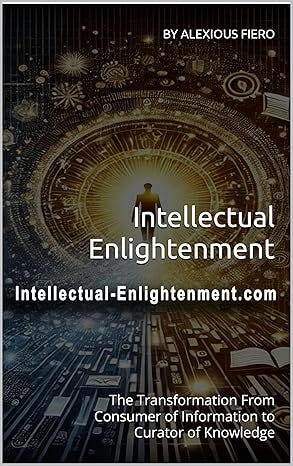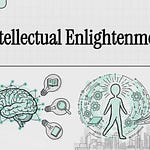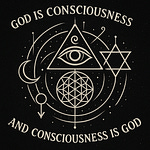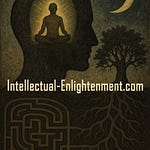A rising ideological current challenges everything the Enlightenment stood for—by embracing hierarchy, rejecting democracy, and redefining progress.
The Dark Enlightenment, also known as the neo-reactionary movement (NRx), is a political and philosophical ideology that emerged in the early 21st century. It challenges the foundational principles of liberal democracy, advocating for a return to hierarchical and authoritarian forms of governance.
Origins and Key Figures
The movement was initiated by Curtis Yarvin, an American software engineer who wrote under the pseudonym "Mencius Moldbug." Through his blog "Unqualified Reservations," Yarvin critiqued modern democratic systems and proposed alternative governance models. British philosopher Nick Land further developed these ideas, coining the term "Dark Enlightenment" in his 2012 essay of the same name.
Land, a former academic and theorist, traced the roots of the Dark Enlightenment to a mutation within libertarianism—a disillusionment with its failure to constrain the state or produce viable alternatives. Influenced by Austrian economists and anarcho-capitalist thinkers like David Friedman, Land's intellectual pivot emerged from his engagement with Moldbug’s critique. The result was a new ideological terrain that embraced radical hierarchy and dismissed classical liberal hopes as naive and structurally doomed.
Core Tenets
Rejection of Democracy: Proponents argue that democratic systems are inherently flawed, leading to inefficiency and societal decay.
Advocacy for Hierarchical Governance: The movement supports a return to traditional power structures, such as monarchies or corporate-style governance, where authority is centralized.
Critique of Egalitarianism: NRx thinkers believe that enforced equality undermines natural hierarchies and meritocratic principles.
The Cathedral Concept: A term coined by Yarvin and expanded by Land to describe the alliance of academia, media, and government institutions that propagate progressive ideologies and enforce ideological orthodoxy. Land viewed the Cathedral as a failed attempt to check state power that instead produced a centralized ideological control system.
Neocameralism: A governance model proposed by Yarvin, envisioning the state as a joint-stock corporation with a CEO-like figure at the helm, aiming for efficiency and accountability.
Post-Democratic Realism: Land and his followers reject utopian visions of political change. Instead, they advocate commercializing governance, absorbing state functions into market mechanisms rather than imagining the state’s disappearance.
A Post-Theological Rebellion
For Land and many adherents, the Dark Enlightenment is not just a political stance—it is a metaphysical break. It aims to strip away what they see as the religious roots of liberalism. Universalism, human equality, and the sanctity of democracy are, in their view, secularized remnants of Christian theology. By rejecting them, Dark Enlightenment thinkers attempt to forge a cold, hyper-rational realism rooted in selection, competition, and technocratic hierarchy.
Global and Cultural Dimensions
Land, now residing in China, frequently contrasts the chaotic urban environments of the West with the disciplined governance and social order of Eastern cities. He views this as evidence of the West's liberal decline and the need for alternative civilizational models. His critique extends beyond politics into culture, suggesting that what Western societies call progress is often dysfunction disguised as virtue.
Influence and Criticism
While the Dark Enlightenment remains a fringe movement, its ideas have influenced certain segments of the tech industry and political right. Critics argue that its principles are anti-democratic and promote authoritarianism, posing risks to liberal democratic values.
The ideology’s appeal among tech elites and its resonance in digital subcultures have raised alarms about a potential resurgence of anti-democratic sentiments cloaked in rationalist, high-tech garb.
Conclusion
The Dark Enlightenment presents a radical critique of modern democratic societies, advocating for a return to hierarchical governance structures. Its intellectual lineage, spanning libertarian disillusionment and reactionary metaphysics, offers a coherent if troubling alternative to liberal democracy. While it provides provocative critiques of contemporary dysfunction, it raises profound ethical concerns about individual freedom, pluralism, and the future of governance in the digital age.
As ideas once confined to fringe blogs gain traction in elite circles, understanding the Dark Enlightenment is no longer optional. It is essential to navigating the ideological currents shaping the 21st century.












